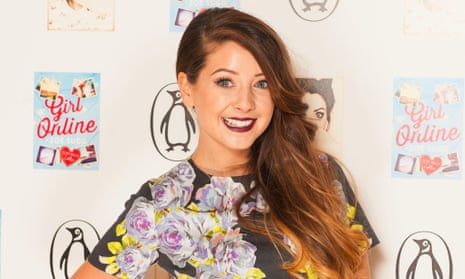YouTube’s top vloggers command huge audiences for their videos online, but they may not be as influential as brands and traditional media companies think, claims a new study from GlobalWebIndex.
The report, based on its ongoing survey of more than 170,000 internet users, suggests that fans of vloggers like Zoella, Alfie Deyes and Tyler Oakley look to them more for entertainment and life advice than to find out about new products and brands.
According to GWI, 42% of internet users say they have watched a vlog within the last month, although this rises to 50% for 16-24 year-olds and 25-34 year-olds. The vast majority of vlog viewers – 93% – are watching them on YouTube.
The report digs in to the attitudes of people who watch vlogs, claiming that they over-index in their interest in fashion, brands and new products.
“Three quarters say they like to try new products, two thirds want the most up-to-date tech products and over half keep in touch with the latest fashions,” suggests GWI.
However, according to its survey, only 12% of viewers say they find out about new brands and products from vloggers, right at the bottom of a list topped by stories on websites, recommendations from friends, and search engine results.
“it’s clear that vlogging is still heavily associated with entertainment, comedy and advice – rather than a space for overtly commercial activities,” suggests GWI, noting the controversy when vloggers advertise products without this being clearly labelled on their videos.
The study may make some brands be more cautious when deciding whether to throw money at vloggers for sponsored videos and endorsements, but there are a few caveats to its conclusions – not least the relatively narrow definition of “influence” to focus on brands and products.
YouTube stars have influence in other ways, from Zoella speaking out about panic attacks and anxiety to Tyler Oakley’s work with a charity specialising in the prevention of suicide in LGBTQ [lesbian, gay, bisexual, trans and queer] young people.
Their cultural influence may outweigh their commercial influence, in many cases, and that’s not necessarily a problem.
GWI’s survey’s youngest respondents are 16 years old, meanwhile, so it’s unclear whether younger teenagers are more influenced by the vloggers that they are growing up with.
A survey of 1,500 13-17 year-olds in the US commissioned by Variety in 2014 came up with its own definition of “influence”, and claimed that YouTube stars Smosh, The Fine Bros, PewDiePie, KSI and Ryan Higa were more influential for this age group than any traditional film, music or TV stars.
“YouTube stars scored significantly higher than traditional celebrities across a range of characteristics considered to have the highest correlation to influencing purchases among teens,” claimed Variety at the time.
In any case, some vloggers have already proved influential in persuading fans to buy their own products. Zoella’s Girl Online was the fastest selling book of the year in the UK in 2014, with Deyes’ The Pointless Book was a big hit earlier in the year.
In the US, YouTubers Shane Dawson, Cameron Dallas, Grace Helbig and Hannah Hart have appeared in films that, when released straight onto iTunes, have outsold more high-profile movies from Hollywood studios.

Comments (…)
Sign in or create your Guardian account to join the discussion